Nobel Prize winner warns world about artificial intelligence dangers
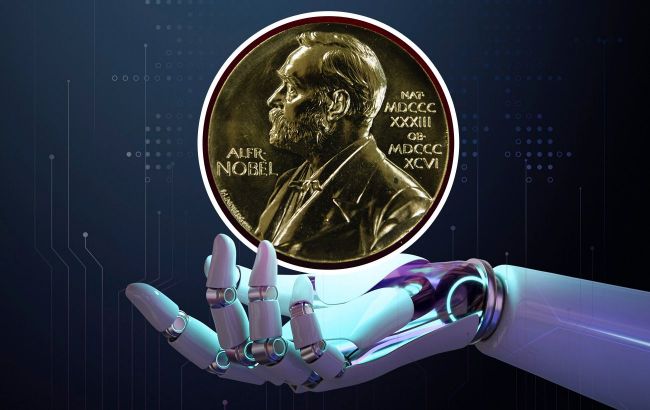 Nobel Prize winner on the risks of artificial intelligence (collage: RBC-Ukraine)
Nobel Prize winner on the risks of artificial intelligence (collage: RBC-Ukraine)
Computer scientist Geoffrey Hinton won the Nobel Prize in Physics for his work in artificial intelligence. However, he immediately issued a warning about the power of the technology that his research helped to advance, according to CNN.
Geoffrey Hinton warns of potential dangers of artificial intelligence
“It will be comparable with the Industrial Revolution,” he said after the announcement. “But instead of exceeding people in physical strength, it’s going to exceed people in intellectual ability. We have no experience of what it’s like to have things smarter than us.”
Hinton, who famously left Google to warn of the potential dangers of AI, has been called the godfather of the technology.
Now affiliated with the University of Toronto, he shared the prize with Princeton University professor John Hopfield “for foundational discoveries and inventions that enable machine learning with artificial neural networks.”
While Hinton acknowledges that AI has the potential to change some parts of society for the better - for example, leading to “huge improvement in productivity” in industries such as healthcare - he also emphasized the potential “a number of possible bad consequences, particularly the threat of these things getting out of control.”
“I am worried that the overall consequence of this might be systems more intelligent than us that eventually take control,” he said.
Hinton is not the first Nobel Prize winner to warn of the dangers of the technology he helped create.
_1.jpg) Geoffrey Hinton is called the godfather of artificial intelligence (photo: Wikimedia)
Geoffrey Hinton is called the godfather of artificial intelligence (photo: Wikimedia)
Nuclear weapons (1935)
The 1935 Nobel Prize in Chemistry was shared by a married couple, Frederic Joliot and Irene Joliot-Curie (daughter of laureates Marie and Pierre Curie), for the discovery of the first artificially created radioactive atoms. It was a work that contributed to important advances in medicine, including the treatment of cancer, as well as the creation of the atomic bomb.
In his Nobel Lecture that year, Jolyot concluded with a warning that future scientists will “be able to bring about transmutations of an explosive type, true chemical chain reactions.”
“If such transmutations do succeed in spreading in matter, the enormous liberation of usable energy can be imagined,” he said. “But, unfortunately, if the contagion spread to all the elements of our planet, the consequences of unloosing such a cataclysm can only be viewed with apprehension.”
Nevertheless, Joliot predicted that this would be “a process that [future] investigators will no doubt attempt to realize while taking, we hope, the necessary precautions.”
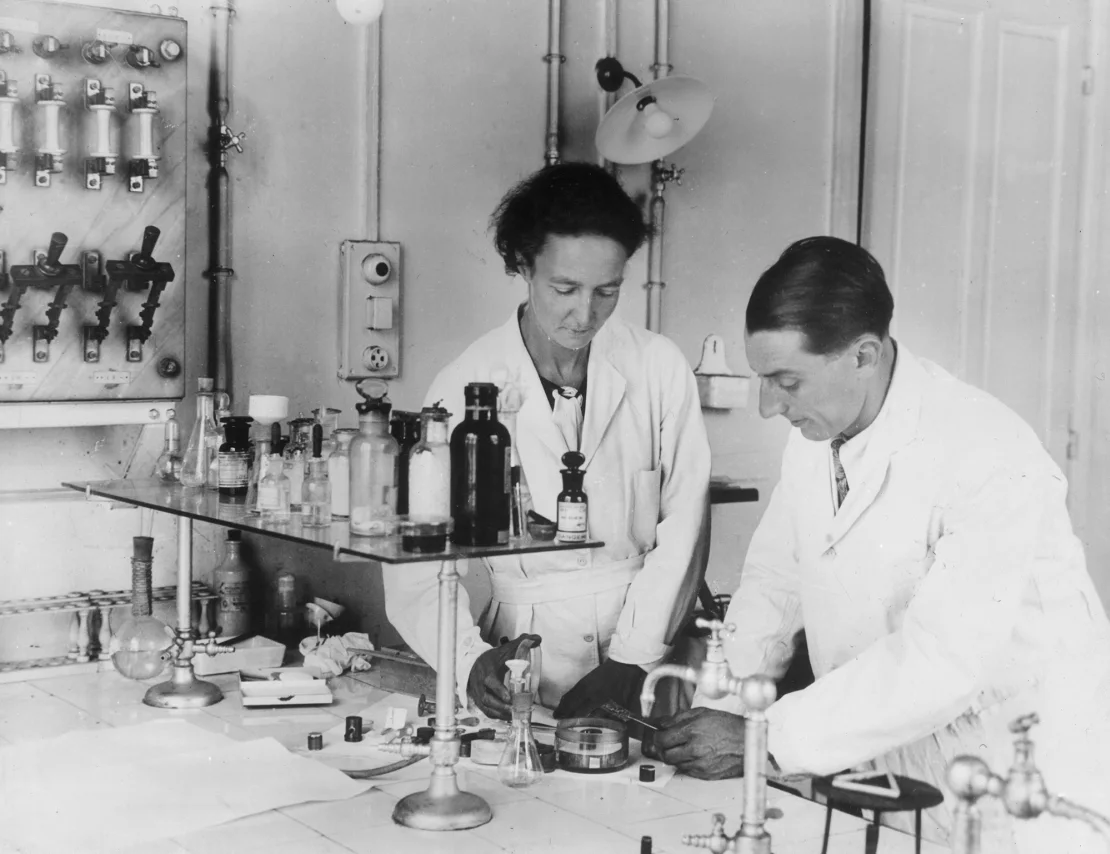 Irene Jolyot-Curie and Frédéric Jolyot shared the Nobel Prize in Chemistry in 1935 (photo: CNN)
Irene Jolyot-Curie and Frédéric Jolyot shared the Nobel Prize in Chemistry in 1935 (photo: CNN)
Antibiotic resistance (1945)
Sir Alexander Fleming shared the 1945 Nobel Prize in Medicine with Ernst Chain and Sir Edward Florey for the discovery of penicillin and its use in the treatment of bacterial infections.
Fleming had made the initial discovery in 1928, and by the time he delivered his Nobel lecture in 1945, he had already issued an important warning to the world: “It is not difficult to make microbes resistant to penicillin in the laboratory by exposing them to concentrations not sufficient to kill them, and the same thing has occasionally happened in the body,” he said.
“The time may come when penicillin can be bought by anyone in the shops,” he continued. “Then there is the danger that the ignorant man may easily underdose himself and, by exposing his microbes to non-lethal quantities of the drug, make them resistant.”
Almost a century after Fleming's initial discovery, antimicrobial resistance - the resistance of pathogens such as bacteria to drugs designed to treat them - is considered one of the greatest threats to global public health, according to the World Health Organization, responsible for 1.27 million deaths in 2019 alone.
A key part of Fleming's warning may have been the overuse of antibiotics, rather than the idea of low dosages.
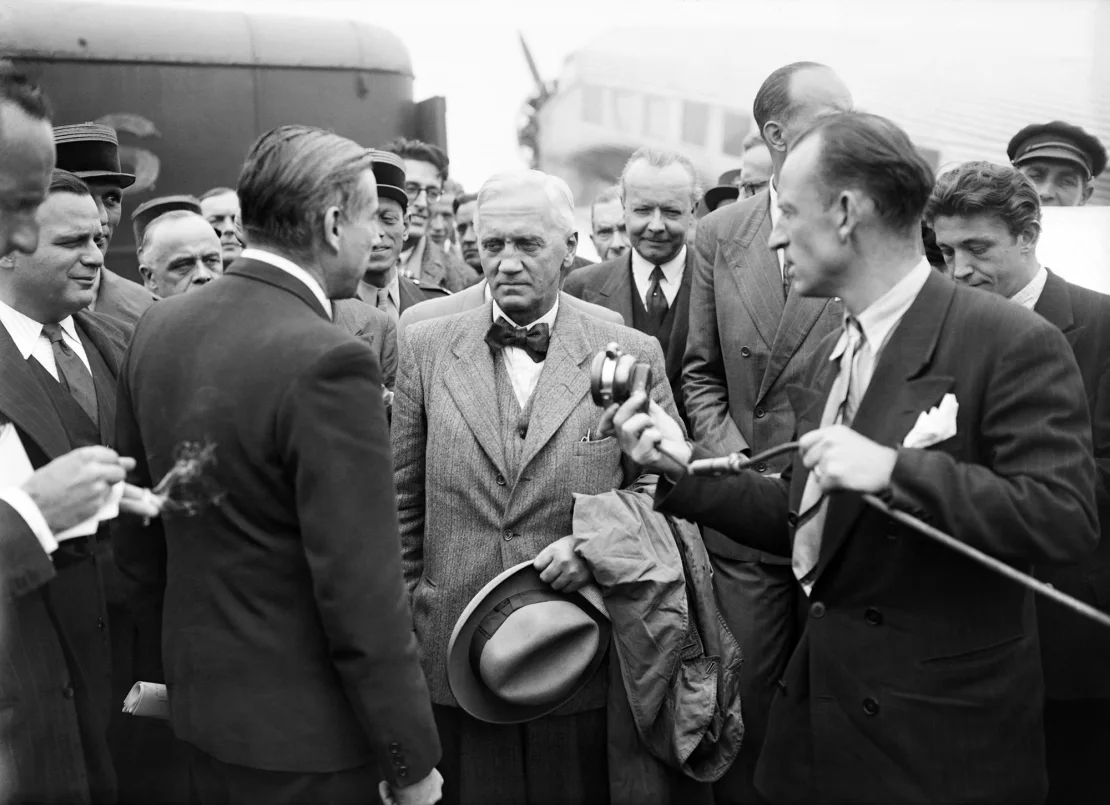 Sir Alexander Fleming, who discovered penicillin in 1928, received the Nobel Prize for Medicine in 1945 (photo: CNN)
Sir Alexander Fleming, who discovered penicillin in 1928, received the Nobel Prize for Medicine in 1945 (photo: CNN)
Recombinant DNA (1980)
Paul Berg, who won the 1980 Nobel Prize in Chemistry for his development of recombinant DNA, a technology that helped spur the development of the biotechnology industry, did not issue the same clear warning as some of his fellow laureates about the potential risks of his research.
But he did acknowledge fears about what genetic manipulation could lead to, including biological warfare, genetically modified foods, and gene therapy, a form of medicine that involves replacing a defective gene that causes a disease with a normally functioning one.
In his 1980 Nobel Lecture, Berg focused specifically on gene therapy, stating that this approach “has many pitfalls and unknowns, amongst which are questions concerning the feasibility and desirability for any particular genetic disease, to say nothing about the risks.”
“It seems to me,” he continued, “that if we are ever to proceed along these lines, we shall need a more detailed knowledge of how human genes are organized and how they function and are regulated.”
In an interview decades later, Berg noted that he and other scientists in the field had already publicly come together to recognize the potential dangers of the technology and work on protective barriers, at a conference known as Asilomar in 1975.
“The concerns about the recombinant DNA or genetic engineering came from the scientists, so that was a very crucial fact,” he told science writer Joanna Rose in 2001.
By 2001, he said, “the experience and experiments that have been done have shown that the original concerns which we really believed were possible, in fact, didn’t exist.”
Now gene therapy is a growing field of medicine, with approved treatments for sickle cell anemia, muscular dystrophy, and some inherited forms of blindness, although it is not widely used because it is still difficult to administer and very expensive.
In its early years, the technology led to the death in 1999 of a 17-year-old clinical trial participant, Jesse Gelsinger, raising ethical questions about how the study was conducted and slowing work in the field.
Although Berg himself expressed concern, he concluded his 1980 Nobel lecture with a call for optimism and the need to move forward.
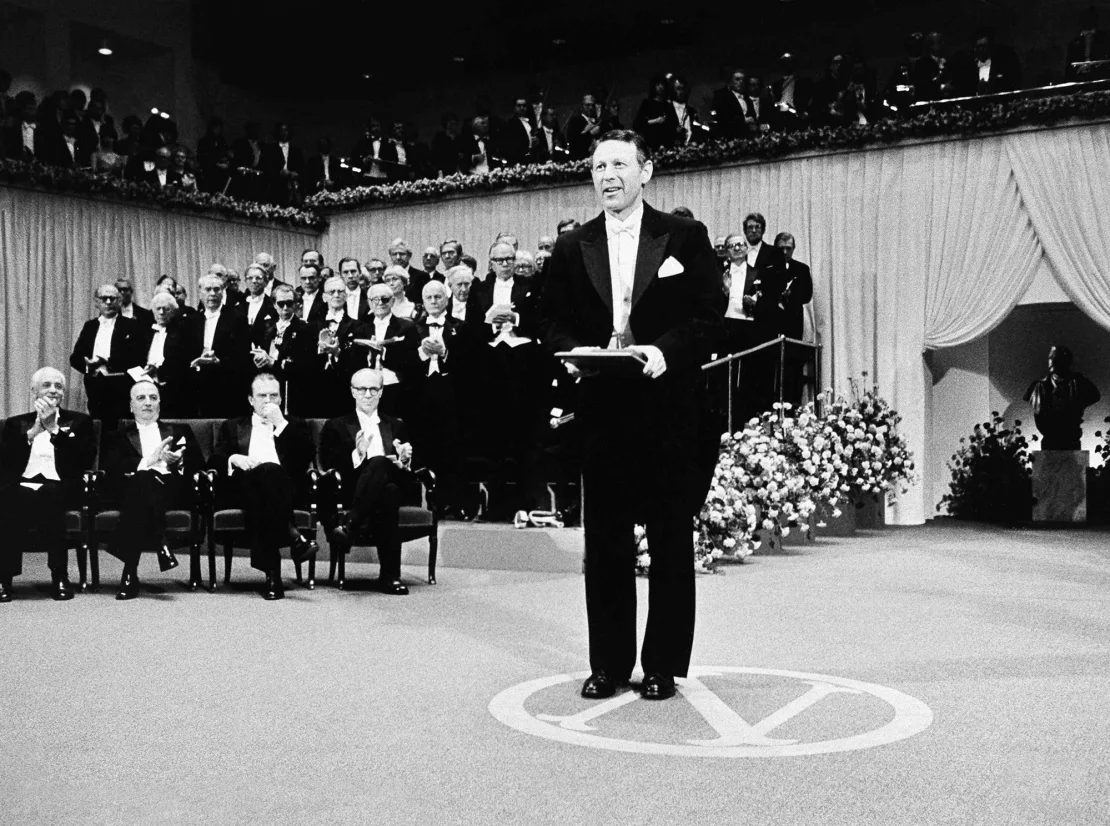 Paul Berg receives the Nobel Prize in Chemistry in Stockholm in December 1980 (photo: CNN)
Paul Berg receives the Nobel Prize in Chemistry in Stockholm in December 1980 (photo: CNN)
Gene editing (2020)
Four years ago, Jennifer Doudna and Emmanuelle Charpentier shared the Nobel Prize in Chemistry for developing the CRISPR-Cas9 genome editing method.
In her lecture, Doudna spoke in detail about the “extraordinary and exciting opportunities” of this technology in the fields of public health, agriculture, and biomedicine.
But she clarified that the work must be done with much more care when applied to human cells, whose genetic changes will be passed on to offspring, as opposed to somatic cells, where any genetic changes will be limited to the individual.
“Heritability makes genome editing of germ cells a very powerful tool when we think about using it in plants or using it to create better animal models of human diseases, for example,” Dudna said.
Doudna, who founded the Institute for Innovative Genomics, told CNN that she believes it is “appropriate warnings from scientists about the potential misuse of their discoveries is an important responsibility and helpful public service, particularly when the work has broad societal implications.”
“Those of us closest to the science of CRISPR understand that it’s a powerful tool that can positively transform our health and world but could potentially be used nefariously,” she said. “We’ve seen that dual-use capability with other transformative technologies like nuclear power – and now with AI.”
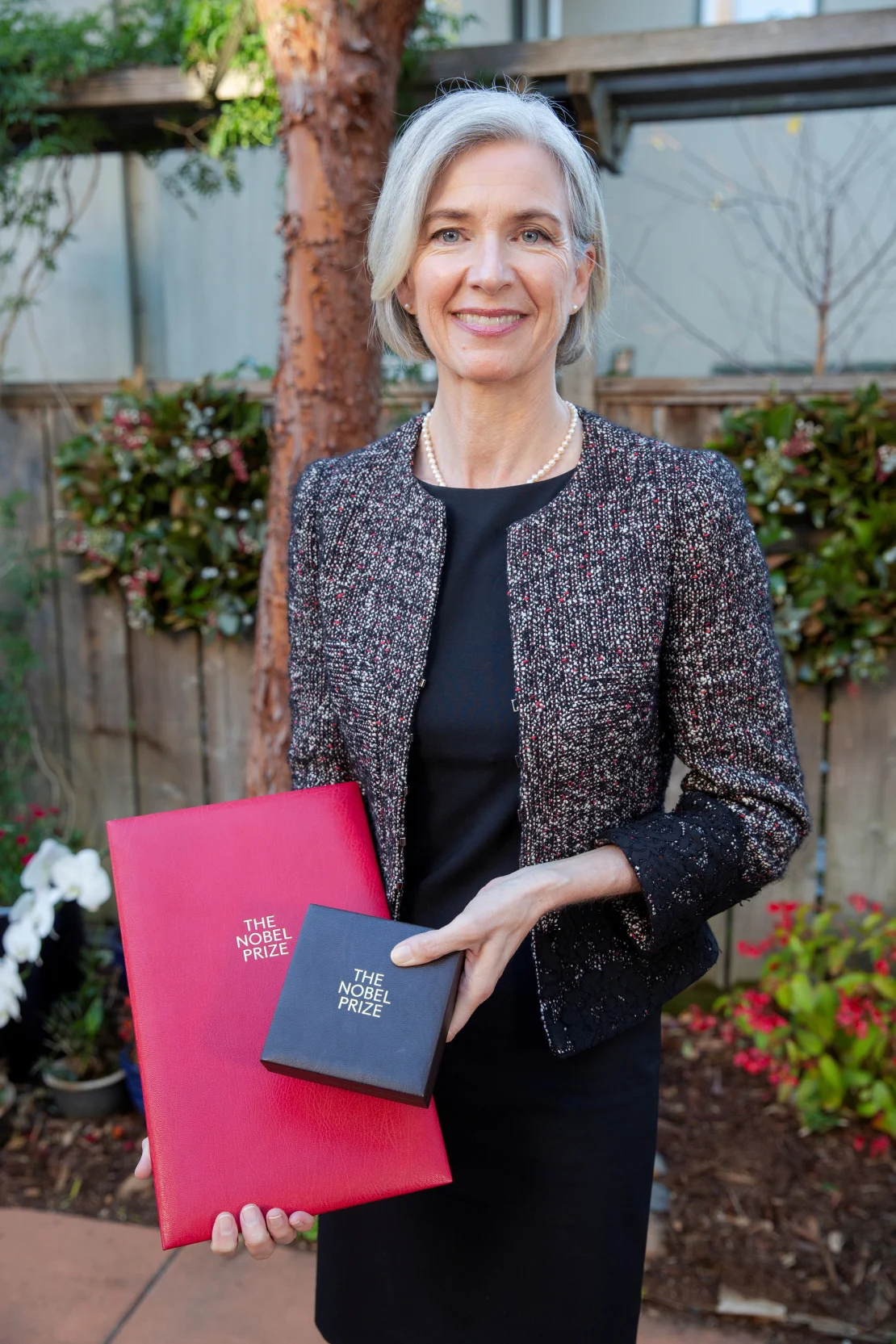 Jennifer Doudna won the Nobel Prize in Chemistry in 2020 for her work on a new method of gene editing (photo: CNN)
Jennifer Doudna won the Nobel Prize in Chemistry in 2020 for her work on a new method of gene editing (photo: CNN)
Earlier, we wrote about 5 cities in the world where artificial intelligence is changing lives.
Read also how artificial intelligence will help farmers get more crops at lower costs.

